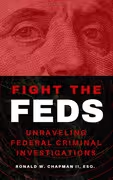Ronald W. Chapman II
Seeking Disqualification of a Federal Judge
When to File a Motion for Judicial Bias: Understanding Your Legal Rights
Understanding 28 U.S.C. § 144
Section 144 addresses situations where a party believes that the judge has a personal bias or prejudice against them or in favor of any adverse party. The key requirements are:
- Affidavit: The party must file a timely and sufficient affidavit stating the facts and reasons for the belief that bias or prejudice exists.
- Timing: The affidavit must be filed not less than ten days before the beginning of the term at which the proceeding is to be heard, unless there is good cause for delay.
- Content: The affidavit must state the facts and reasons for the belief that bias or prejudice exists, and it must be accompanied by a certificate of good faith from counsel.
Understanding 28 U.S.C. § 455
Section 455 provides broader grounds for disqualification and is applicable even without a party’s motion. The key provisions include:
- Personal Bias or Prejudice: A judge shall disqualify themselves in any proceeding in which their impartiality might reasonably be questioned (§ 455(a)).
- Specific Circumstances: Disqualification is required if the judge has personal knowledge of disputed evidentiary facts, has a financial interest in the matter, or has previously acted as a lawyer in the matter (§ 455(b)).
- Associations: If a judge or their family has an interest that could be substantially affected by the outcome of the proceeding, disqualification is mandatory (§ 455(b)(4)).
What to Expect
- Filing the Motion: You will need to file a motion with a supporting affidavit as specified in 28 U.S.C. § 144. The affidavit should detail specific facts and circumstances that suggest bias or prejudice.
- Judge's Response: The judge will review the motion and affidavit. If the judge finds the affidavit sufficient, they must step aside, and another judge will be assigned. If the judge finds the affidavit insufficient, they may continue to preside over the case.
- Procedural Review: The judge’s decision on recusal can be reviewed by an appellate court if it is challenged. The appellate court will evaluate whether the judge abused their discretion in deciding not to recuse themselves.
- Standard of Review: The appellate court typically reviews the denial of a recusal motion for abuse of discretion. This means the court will consider whether the judge’s decision was arbitrary or unreasonable based on the evidence presented.
Strategic Considerations
When filing a motion for judicial bias, consider the following strategic points:
- Specificity and Timing: Ensure that the affidavit is specific and timely. General allegations of bias are insufficient; the affidavit must detail particular incidents or statements that demonstrate bias.
- Good Faith: The motion must be filed in good faith. Frivolous or strategic filings intended to delay proceedings can backfire and potentially result in sanctions.
Notable Examples
There are several notable examples of successful recusal motions involving federal judges, demonstrating various grounds for disqualification:
- United States v. Andrews (2004): The Fifth Circuit Court of Appeals ordered the recusal of a judge who expressed dissatisfaction with the sentencing guidelines, leading to an upward departure in sentencing. The appellate court found that the judge’s dissatisfaction created an appearance of bias, warranting reassignment to a different judge on remand.
- United States v. Lentz (2004): The Fourth Circuit held that the presence of inadmissible evidence in the jury room, which could have influenced the verdict, necessitated a new trial. The trial judge’s involvement in the initial proceedings and potential bias led the appellate court to mandate reassignment to a different judge to ensure impartiality in the new trial.
- Ellis v. U.S. District Court (2004): The Ninth Circuit en banc decision required recusal when a trial judge rejected a plea agreement after previously accepting a guilty plea. The appellate court ruled that the defendant should be allowed to withdraw the plea and remanded the case to a different judge to avoid any potential bias.
- United States v. Avilez-Reyes (1998): The Fifth Circuit ordered the recusal of a judge who had previously been investigated for misconduct. The involvement of defense counsel in the investigation against the judge created a conflict, prompting the appellate court to require reassignment.
- In the Matter of Jeffrey C. Hatcher (1998): The Seventh Circuit required recusal where a judge’s son, interning at the U.S. Attorney’s office, participated in a related trial. The judge’s presence in the courtroom as an observer also contributed to the appearance of partiality.
FAQ
What are the grounds for filing a motion for judicial bias?
Grounds for filing a motion for judicial bias include personal bias or prejudice of the judge, financial interest in the case, or previous involvement as a lawyer in the matter. Specific legal standards are outlined in 28 U.S.C. § 144 and 28 U.S.C. § 455.
How do you prove judicial bias?
To prove judicial bias, you must file a detailed affidavit stating specific facts and reasons for the belief that bias exists. This affidavit must show instances or statements by the judge that indicate bias or prejudice.
What happens if a motion for judicial bias is denied?
If a motion for judicial bias is denied, the judge will continue to preside over the case. However, the decision can be appealed, and an appellate court will review whether the denial constituted an abuse of discretion.
Unlock the Secrets of Federal Criminal Defense – Free Chapter Inside!
Discover the untold strategies used to secure acquittals in federal criminal cases. Authored by Ronald W. Chapman II, a leading federal defense attorney, this book provides insider knowledge on navigating and overcoming federal investigations.

Inside the Book:
- The secrets to the success of hundreds of dismissals and acquittals
- Learn the secrets defense attorneys use to secure acquittals
- Get inside federal prosecution tactics
- Never before told insights into the nation's highest profile cases
Curious to learn more? Click here to preview a free chapter of "Fight the Feds: Unraveling Federal Criminal Investigations" and start reading today!
Preview a Free ChapterRonald W. Chapman II
Winning Trial Attorney | Legal Analyst | Author
“One of the most talented attorneys I have seen in my 20 years on the bench” Federal Judge
“He’s a Federal Criminal Defense Attorney extraordinaire” Neil Cavuto, Fox News Host
Recent Results
-
Ronald W. Chapman II secured a complete acquittal for Dr. Loey Kousa, who faced charges of healthcare fraud, drug trafficking, and maintaining a drug-involved premises. This triumph is particularly noteworthy as Chapman defeated the Department of Justice's Healthcare Fraud Strike Force, showcasing his exceptional legal acumen and dedication to justice.
-
Ronald W. Chapman II successfully secured a complete acquittal for Dr. Kendall Hansen, who faced severe allegations from the Department of Justice, including healthcare fraud and drug trafficking. This victory against the DOJ Strike Force underscores Chapman's formidable legal expertise and his unwavering commitment to defending his clients' rights and reputations.
-
Ron stunnud lhe DOJ with a full acquittal in United States v. Bothra a complex healthcare fraud indictment.
-
Dismissal of two federal opioid death counts in United States v. Sachy. (Read More)
-
Full acquittal in United States v. Pompy a Detroit drug indictment against an interventional anesthesiologist.
Read More
-
Full acquittal in People v. Joseph Oesterling, a mayo clinic trained physician charged with drug trafficking. (Read More)
-
United States v. McCutchen, a Detroit physician was charged in a wide ranging Oxycodone drug conspiracy.
-
In United States v. Aggarwal Ron secured a full acquittal of a physician accused of drug trafficking and healthcare fraud.
Satisfied Clients
“Ron is ferocious in the federal courtroom, watching him do his thing was like watching a fighter in his prime”
“This is who you want in a federal courtroom”
“Ron was our knight in shining armor. Without question he was born to be a leader”
Ron is trusted by national news networks such as BBC, NPR, FOX, NewsNation for his legal analysis
Unlock the Secrets of Federal Criminal Defense – Free Chapter Inside!
Discover the untold strategies used to secure acquittals in federal criminal cases. Authored by Ronald W. Chapman II, a leading federal defense attorney, this book provides insider knowledge on navigating and overcoming federal investigations.

Inside the Book:
- The secrets to the success of hundreds of dismissals and acquittals
- Learn the secrets defense attorneys use to secure acquittals
- Get inside federal prosecution tactics
- Never before told insights into the nation's highest profile cases
Curious to learn more? Click here to preview a free chapter of "Fight the Feds: Unraveling Federal Criminal Investigations" and start reading today!
Preview a Free ChapterFederal Criminal Defense Attorney Ronald W. Chapman II.
Serving clients in Detroit, Michigan and Nationwide
Hours
Monday – Friday
8:30am – 6pm
Contact Info
1300 Broadway St. Fl 7
Detroit, Michigan 48226
(313) 241-8607
The thoughts and opinions expressed on this page and all content are solely the thoughts and opinions of the author and do not constitute legal advice. Readers must consult with qualified legal counsel prior to taking any action that impacts their rights and cannot rely solely on the opinions and thoughts expressed on this page. Reading this page or viewing any content on this page does not form an attorney client privilege and the comments, email inquiries, and other communications with Ronald Chapman II are not confidential.
Copyright 2025. Liebling Group All Rights Reserved. Privacy Policy




